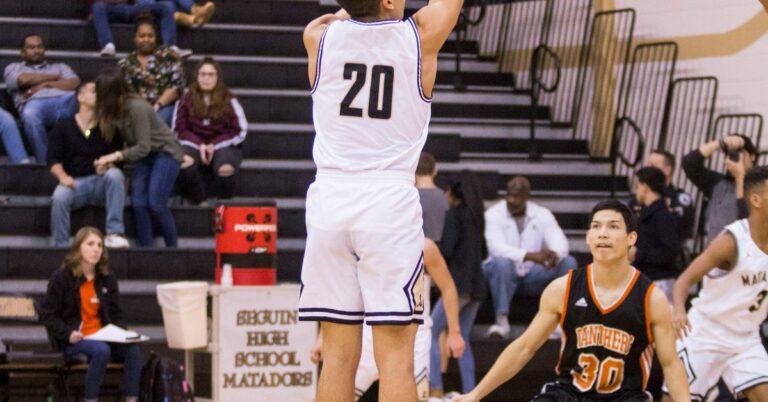Secret Strategies Teams Use to Dominate in High-Stakes Matches Revealed!
High-stakes matches can feel like a pressure cooker. The tension is palpable, the stakes are sky-high, and the outcome can mean the difference between glory and despair. Picture the scenario: packed stadiums, fans on the edge of their seats, and coaches sweating bullets from the sidelines. Yet, amid this chaos, some teams seem to have a secret sauce, a winning formula that catapults them to victory against all odds. So, what are these clandestine strategies that transform ordinary teams into champions when it matters most? Let’s dive in!
The Art of Preparation
Preparation is arguably the most crucial element in high-stakes sports. Behind every triumphant team is a meticulously crafted game plan, often developed through weeks—or even months—of research and practice. Coaches and analysts pour over game footage, dissecting every play, every move, and every decision made by their opponents.
Take, for example, the legendary coach Bill Belichick of the New England Patriots. His team is known for their intense preparation, often to the point of obsession. Belichick famously analyzes game film not just from the current season but also from years past. This attention to detail allows him to anticipate opponents’ strategies and exploit weaknesses. I remember hearing a player once say, “We don’t just prepare for the game; we prepare for every possible scenario in the game.” It struck me then that preparation is less about the game itself and more about controlling the narrative.
Psychological Warfare
In high-stakes matches, the mental game can be just as important as the physical. Teams often employ psychological strategies to gain an edge over their rivals. These tactics can range from mind games during press conferences to subtle manipulations on the field.
Consider the notorious “trash talk” that often crops up in sports. It’s not just about riling up the opponent; it’s about planting seeds of doubt. I recall a particularly tense NBA playoff series where one player’s off-the-court comments seemed to rattle his opponent. It was almost as if the team had an invisible weight on its shoulders. Coaches often encourage players to maintain a strong mental focus, reminding them that confidence can be a game changer.
Adaptability and Flexibility
Let’s face it: no game ever goes exactly as planned. Good teams, however, can adapt on the fly. They have a roster of strategies at their disposal and are not afraid to switch things up if the original plan isn’t working. This adaptability often comes from a deep understanding of the game and the players’ unique strengths.
During the 2016 UEFA Champions League, for instance, the final match saw Real Madrid and Atlético Madrid both adjusting their tactics in real-time. When Atlético’s defensive formation stifled Madrid’s attacks, Madrid’s coach seamlessly shifted their strategy to play more on the wings, exploiting space that Atlético had left open. The ability to pivot and adjust can often spell the difference between a win and a loss. It’s both an art and a science.
Data-Driven Decisions
In recent years, analytics have transformed sports. Gone are the days of relying solely on gut feelings and experience; now, teams have access to a treasure trove of data. From player performance metrics to opponent tendencies, the numbers tell a story that can guide crucial decisions.
During the 2018 World Cup, the French national team capitalized on data analytics to fine-tune their strategies. They analyzed the positioning and movement patterns of their opponents and used that information to schedule their training sessions accordingly. The result? A well-oiled machine that ultimately lifted the trophy. One analyst remarked, “We weren’t just playing the game; we were playing the numbers.” It’s fascinating how the marriage of technology and sports can yield such tangible results.
Physical Conditioning
Let’s not underestimate the power of physical conditioning. In high-stakes matches, fatigue can be a killer. Teams that prioritize fitness and strength training often gain a significant advantage as the game progresses. The intensity of a match can take its toll, and those extra hours spent in the gym can make all the difference.
Consider the rigorous training regimens employed by elite teams like the All Blacks, New Zealand’s national rugby team. Their focus on physical conditioning, coupled with mental resilience training, has turned them into one of the most successful teams in sports history. Players often describe their training as grueling yet essential. As one former player put it, “If you’re not fit, you’re not in the game—simple as that.”
Team Chemistry and Cohesion
You can have the best players in the world, but if they don’t mesh well, the results can be dismal. Team chemistry is a subtle, often overlooked factor that can make or break a high-stakes match. Teams that have built strong relationships—both on and off the field—tend to perform better under pressure.
Look at the Golden State Warriors during their championship runs. The camaraderie between players like Steph Curry, Klay Thompson, and Draymond Green created an unshakeable bond that translated into seamless teamwork on the court. I remember a game where they executed a series of plays that looked almost choreographed—evidence of hours spent developing their synergy. It’s no coincidence that the most successful teams often have players who genuinely care for one another.
Utilizing the Home Advantage
Home games can provide an enormous advantage, and teams often leverage this to their benefit. Familiarity with the field, supportive fans, and even the local climate can play a role in dictating the outcome of a match. Teams employ various strategies to maximize their home-field advantage, from crowd engagement to optimizing travel schedules for opposing teams.
During the 2015 NFL playoffs, the Seattle Seahawks showcased the power of their home crowd, famously known as the “12th Man.” Their fans created such an intimidating atmosphere that it affected opposing players’ performance. The Seahawks’ strategy was simple: engage the fans and make the noise work for them. It’s a reminder that sports are as much about the emotional experience as they are about the physical.
Embracing Technology
As technology continues to evolve, so do the strategies used in high-stakes matches. From virtual reality training to advanced wearable technology, teams are finding new ways to prepare and perform. The integration of technology into training and game-day strategies is more than just a trend—it has become a necessity.
Take FC Barcelona, for instance. They’ve embraced technology not just for player performance but for fan engagement as well. By using augmented reality apps, they’ve created an immersive experience that allows fans to feel as if they’re right there on the pitch. It’s a brilliant move that enhances team support and creates a vibrant atmosphere during matches. It’s fascinating how technology can influence not just how teams play but also how fans connect with them.
Building a Winning Culture
Ultimately, winning isn’t just about strategies or tactics; it’s about culture. Teams that foster a winning mentality and instill values of hard work, resilience, and discipline often find themselves on the path to success. This culture is built over time and is reflected in every aspect of the team.
The San Antonio Spurs, under the leadership of coach Gregg Popovich, exemplify this winning culture. They’ve maintained a standard of excellence that transcends individual players. New recruits are quickly integrated into this culture, ensuring that the team’s values remain intact. One former player shared, “You didn’t just play for the Spurs; you played for something bigger than yourself.” It’s a powerful reminder that a team’s culture can be the bedrock of its success.
Conclusion: The Secrets Unveiled
As we peel back the layers on the strategies teams employ to dominate in high-stakes matches, it becomes clear that success is a complex tapestry woven from preparation, mental fortitude, adaptability, data-driven decisions, physical conditioning, team chemistry, and a winning culture. The blend of these factors is what sets the champions apart from the rest.
In the end, while some teams may have their secret strategies, the true essence of sports lies in the unpredictability and sheer excitement of competition. So, the next time you find yourself watching a nail-biting game, remember that there’s a lot more happening behind the scenes than meets the eye. And who knows? You might just spot the next great strategy unfolding right before you!













